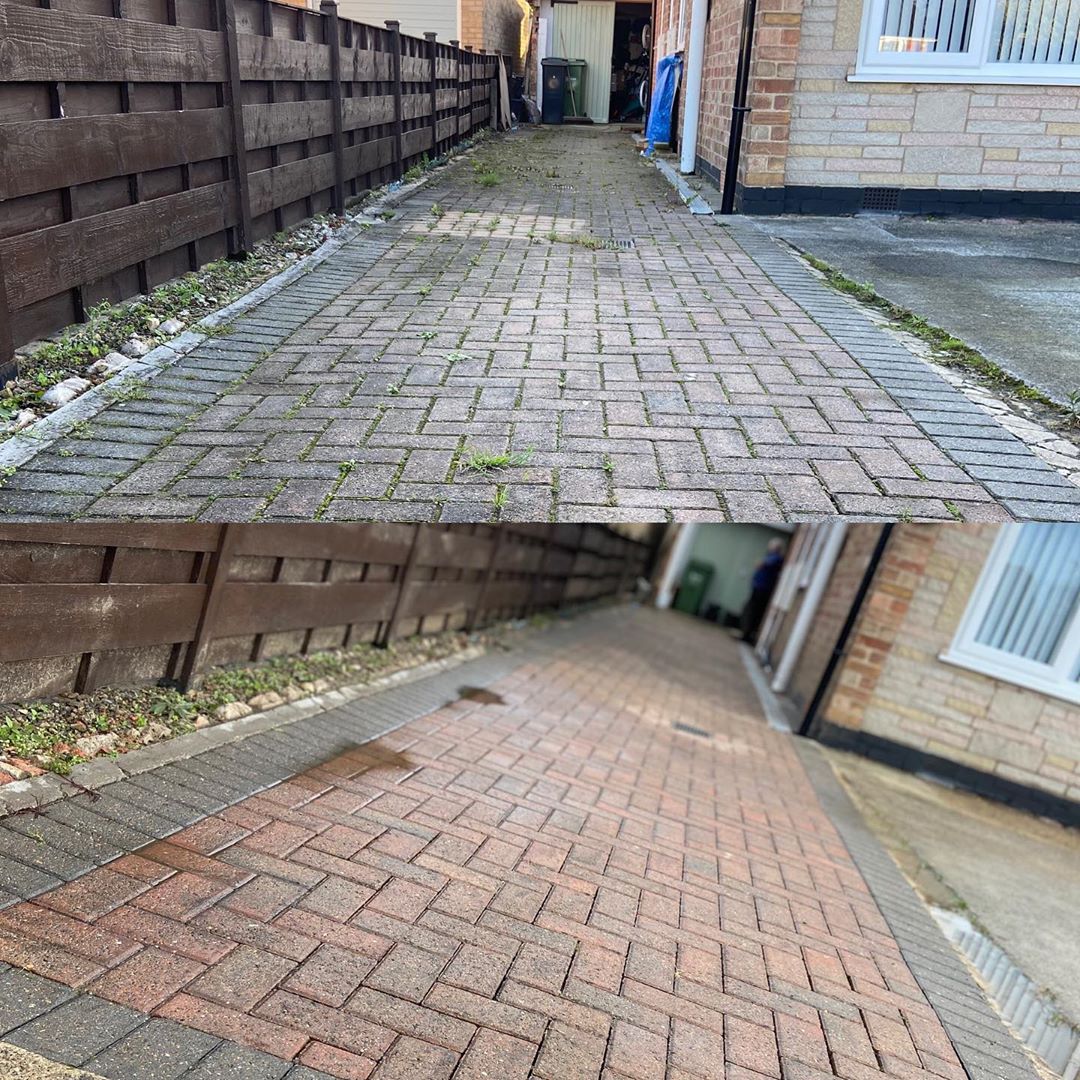How to Properly Clean a Concrete Driveway
Driveways are not the easiest thing To clean. Anyone that’s spent a hot summer out there with nothing but a hose and a brush knows this feeling. For one, they are exposed to the elements. Everything and anything gets on there. Another is that the collection of dirt and grime can be overwhelming. Most of us just ignore it. Why put in all that effort to clean something that so quickly gets dirty and gunk-filled? Well, unfortunately, as a grown-up, we’ve got to do things that we don’t want to do, and the aesthetic upkeep of our home does include the driveway. If you’re looking to find a way to, once and for all, get that cement looking mighty clean, you’ve come to the right place. Here are a few techniques to truly get your concrete driveway spotless.

Pressure Washers
Before going into any other detail, there’s a cheat code to all of this. The hose and the brush do work, but it’s undeniably tedious. You can get that driveway clean in a few minutes if you invest in a pressure washer. Ever seen one? They’re the ultimate time-saver. Essentially they’re like any other hose, except it’s got a high-pressure tank that blasts a jet stream of up to 2000 PSI. If you look at pressure washers reviews, you can find ones with all sorts of attachments and add-ons. Which one you get is a matter of personal preference. But the final word on pressure washers is that they’re relatively inexpensive, blast away grime and dirt, and cut your cleaning time by over half.

Oil
Assuming you don’t have a pressure cleaner, the first thing you’re going to have to tackle are oil spots. They’re an absolute pain. We all know that one spot that’s been on the driveway since the nineties and refuses to leave. If it’s a fresh stain, you need to get it soaked up by a highly absorbent substance. You can buy the professional stuff that custodians use in office buildings and schools. Or, if you’re crafty, you can just get kitty litter. It’s the same thing. After you’ve soaked everything up, get an oven cleaner, and apply it to the affected spot.
A word of caution, try to stick to the organic formulas. It’s not for any modern marketing reason—traditional oven cleaners contain caustic soda, and that, if hosed into your lawn, will kill the grass. Let the oven cleaner get into the cement pores for about a half-hour. Afterward, draw it out with some Trisodium phosphate paste and let it sit again. Pop off the TSP paste with a spade or a putty knife. If the stain is still there, do the process again until it’s gone.
Leaves
Rake the leaves in and around your lawn during the fall. Yes, they may look nice, but leaving them out can stain your driveway. When the colored leaves start to decompose into an organic compost heap on your concrete, they can leave behind a pretty nasty tannin stain that a hose won’t easily get rid of. Sure, they’re transient stains, and it will naturally disappear within a week or two, but that defeats the purpose of keeping a clean driveway. To get rid of those, boil a big pot of water, add dish soap to the mix, and scrub them off manually with a brush.
Rust
Rust stains are common, especially in cities where it snows a lot. Why? Because when it starts to snow, the city generally puts salt on the roads to decrease the melting point. That rust gets into different parts of your car, causing it to rust. That, plus all the melted snow, and you’ve got a big old rust stain on your driveway. Good thing there’s an easy solution—concentrated hydrochloric acid breaks down the rust compound, ferric oxide, into ferric chloride, and water. Don’t worry about hosing down ferric chloride into the drain. That’s the same compound most cities use to treat sewage and drainage.
Depending on the degree of dirt on your driveway, you’ll probably spend a good part of the afternoon getting it clean. If you have a pressure washer, you’ll be done in less than a half-hour. But if not, the above tips work like magic. You’ll still want to soak up the deeper stains, but ultimately it’s about knowing the stain, understanding the solvent to the stain, and working it in before hosing it off. Once you do that, you’ll finally be able to sleep well, knowing you got the driveway looking spotless.






